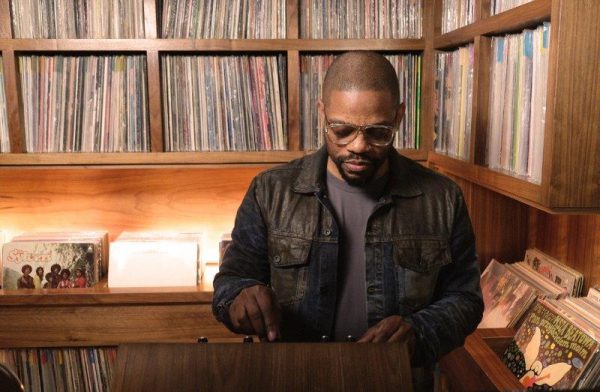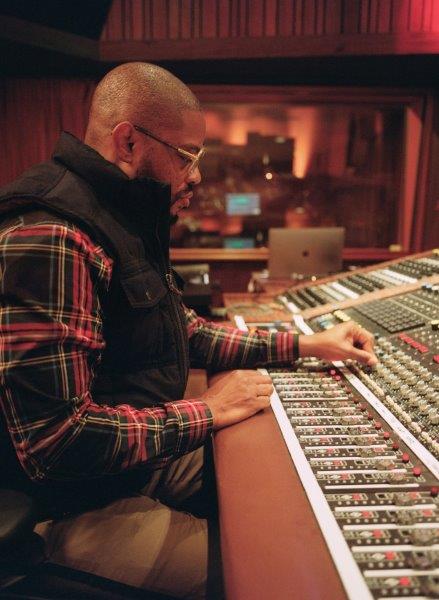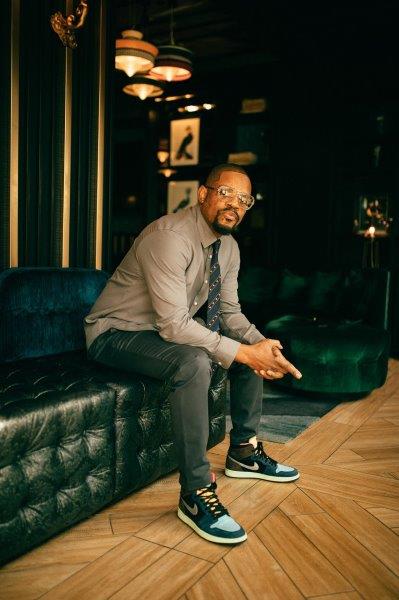Karriem Riggins On J Dilla’s “2 U 4 U”: ‘That Was One Take! He Didn’t Let Me Do Another Take’

Karriem Riggins deserves all his flowers. Three decades deep in the game, the Detroit native is a drummer, producer, DJ, and songwriter, working with the likes of Common, Slum Village, Talib Kweli, Erykah Badu, The Roots, Paul McCarney, and the late, great J Dilla.
While Riggins’ contributions to the genre of jazz are impressive to say the least, working with the greats such as Hank Jones, Oscar Peterson, Milt Jackson, Donald Byrd, and Ron Carter, we definitely can’t overlook his work within the Hip-Hop space. The 47-year-old is best known for his tenure as Common’s bandleader, who actually was the one who introduced him to J Dilla in the first place. Soon after, Riggins and J Dilla would collaborate on critically-acclaimed albums such as Welcome to Detroit and The Shining.
One thing about Riggins, he is an originator. Spanning the genres of old funk, soul, and jazz, Riggins makes and plays the type of breaks that Hip-Hop producers have been sampling off since the genre was birthed.
Advertisement
Fast forward to today, Riggins is excited as ever to unveil his new mini-documentary, Behind The Sleeves, produced by Native Instruments. Together, they created a new digital instrument, as Riggins continues to intentionally inspire the next generation of producers.
The Source spoke with Karriem Riggins via Zoom, who was enjoying the 80 degree weather in Atlanta. Read below as we discuss his relationship with Common, meeting J Dilla, being a fan of J Dilla already, creating a new instrument with Native Instruments, Steve Lacy reaching out, and more!

For those who don’t know, who is Karriem Riggins?
I’m a music-lover, producer, drummer, DJ, and a father. From Detroit, Michigan. My passion for music, it runs deep. I’m a real true creative, and an advocate of just being creative.
How did you end up becoming the bandleader for Common?
I met Common in 1995, went to the jazz showcase. I played for Roy Hargrove for a lot of years, and Common came to the jazz showcase to hear our band. That’s when we connected. I had already heard Resurrection and Can I Borrow a Dollar? I was already a fan, so we stayed in contact. When he was working on One Day It’ll All Make Sense, is when we started to really connect on music. He wanted to start a live band, so that was perfect.
What does it mean to work with such a legend in Hip Hop?
I’m very grateful to be able to work with an artist like him. Being close with Common taught me what MCs need, when buying beats. It taught me how to tailor and make beats for certain people. And he picks — he’s hard. I make 100 beats, and he may pick one. [laughs] It taught me to really go hard to, to really try to artistically fit whatever I’m working on with the artist.

You met J Dilla through Common, bring us back to that moment.
Man, that was an incredible moment. Because when I met Dilla, I had already heard his music. Once I met him, I had already heard the frequencies that he was using. To be in the basement at that time, he had a cassette player and two small speakers. All of that music was made on that small setup, I was amazed. It just inspired me.
I passed him my number and we stayed in contact. He called me when he was working on Slum Village’s Fantastic, Vol. 2. I went to the studio and that’s the song, “2 U 4 U,” that he passed me a cassette of in the studio. He said “I want you to play drums on this.” I went to the car, learned it. Went back in studio, and I did one take. He didn’t let me do another take. That was it. [laughs] That was our first musical collaboration.
What was special about J Dilla’s producing?
What makes him extremely specialist is you hear his ear. You can tell that he’s a real music-lover. He’s not someone that just listens to records for loops, he really listens to learn. So I consider him more of a musician than just a producer. Because he has a real heavy respect for the art form.
When you and J Dilla are together in the studio, what is the synergy between you guys?
He reminds me of a jazz musician, like that one take. A lot of people want to do 100 takes to get it to where they feel like it should go, but he made that work from that one take. We got so many ideas done being in the studio together because we did so many back to back little one offs, then it turned into an album.

Do you miss cassettes?
I do. I still use them to this day. I’ll go record my drums. My drums are recorded to 2 inch tapes. Then from 2 inch, I go to cassette. A lot of the stuff, you hear my drums. You might hear the hiss and everything, it’s on cassettes.
Is there a best memory from The Shining, and that whole process?
I’d pick him up when we had the sessions, and we’d ride to — he’d have a CD of new beats every time I got in the car. One of those CDs, he was shopping Donuts. Donuts was at the time, a B-side CD that he was giving to different artists. Shopping. Listening to that, it blew my mind. I was in heaven, riding to the studio every day. Listening to new stuff like that.
Talk about the collaborative spirit with you and Native Instruments. You created a new instrument?
Yes, this Play series is called Karriem Riggins Drums. I was contacted by Justin Adams from Native Instruments, my good friend. He put it all together. A lot of the ideas I had, sometimes I think there’s so far left. He made it happen. He said “whatever you want to do, we can make it happen.” They went above and beyond, actually exceeded my expectations with how it works.
Hip Hop celebrates 50 years this year. What does Hip Hop mean to you?
Hip-Hop means everything. This is the rhythm that I have, everything that inspires me. From the beginning, my first 45 was Fat Boys “Stick ‘Em.” That was the beginning of Hip-Hop for me, how they were innovative with beatboxing on the mic and using the effects. You can make anything dope in Hip-Hop, it’s about being creative. That’s me, that’s who I am.
Do you have a Top 5?
No, I don’t. I can’t give you a Top 5, but I can give you some people that I really, really love and who inspire me. Dilla, Pete Rock, Madlib, Kaytranada, Elvin Jones, Roy Haynes. Gregory Hutchinson is an incredible drummer who helped me out in my career. When I was in high school, he was a major influence on me and helped me connect to Betty Carter. That’s what sent me to New York, working with Betty car through Gregory Hutchinson. Those are some of my favorites.
What did it mean to have Steve Lacy reach out to you? That’s pretty legendary.
Man, that dude is really incredible. That’s the confirmation that music is gonna be here forever. Because the soul that he has, is an old soul, but he’s also bringing future in it. That inspires me a whole lot, just to want to work with someone like that. To hear what he did to my drums also, that blew my mind to hear that much soul in those drums. He’s an incredible artist.
What are you most excited for next?
Really this Play series, I want to hear what people are making. I’m going to send a message out to the world that I want to hear beats. I want people to send me the music that they’re making with Karriem Riggins Drums. Because we put a lot of hard work into it, it’s just a blessing to hear it back. Keep recycling the energy, gives me energy and inspiration when I hear that. That’s what I’m excited for.
Anything else you want the people to know?
Just to spread love. Through the music, spread love and light.
